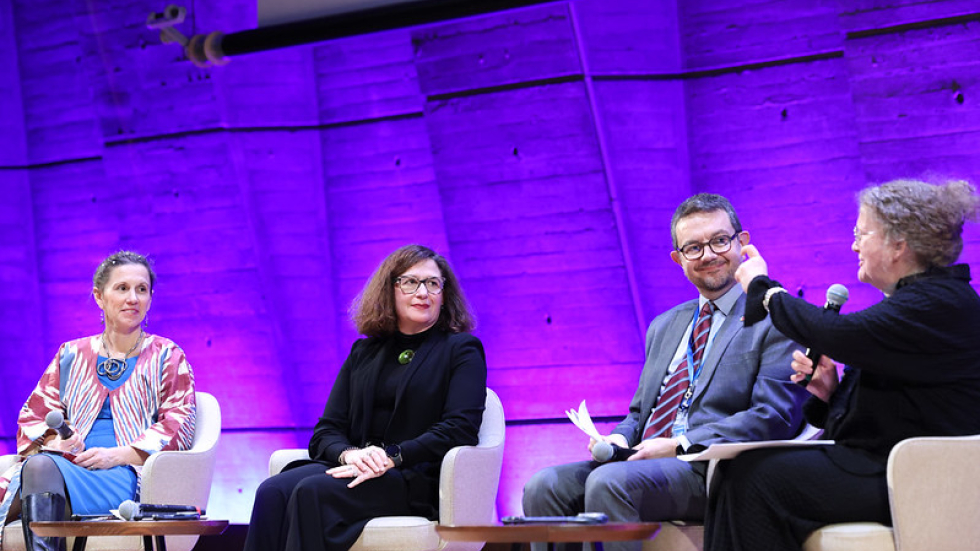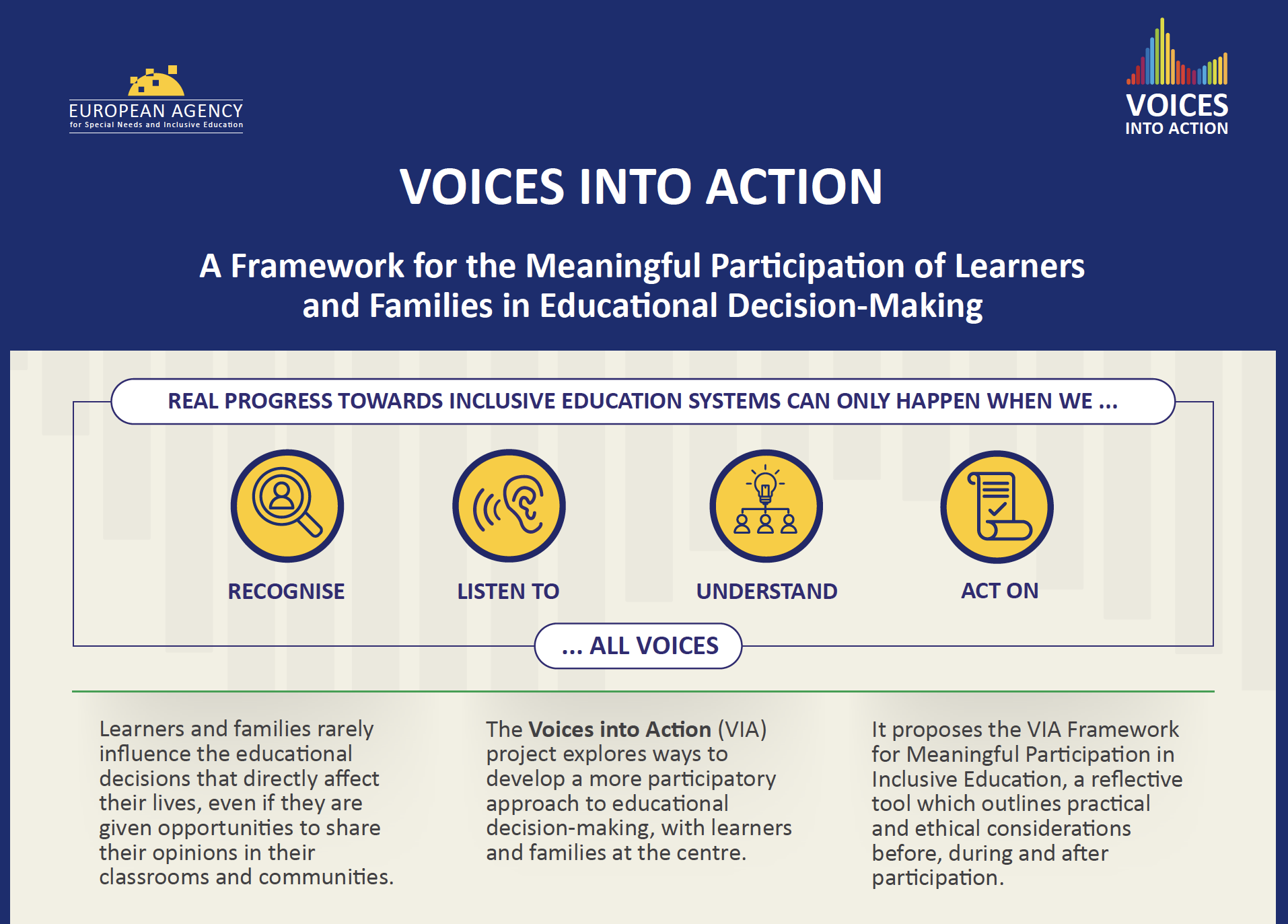An event to mark the 30th anniversary of the Salamanca Statement took place at the UNESCO headquarters in Paris, France, on 13 March.
The Salamanca Statement was adopted at a World Conference organised by UNESCO and the Spanish Ministry of Education and Science and held in Salamanca, Spain, in 1994. The Statement called for countries around the world to adopt more inclusive education systems.
The 30th anniversary event brought together policy-makers, educators and other stakeholders from around the world. It aimed to reflect on the progress made since the Statement was adopted and explore the challenges that inclusive education still faces.
The celebration included a high-level policy dialogue entitled ‘Every learner matters and matters equally: Making education truly inclusive’. The Agency took part in a panel discussion alongside representatives from UNESCO and its Global Education Monitoring Report, and education policy-makers from around the world.
During the panel discussion, the Agency’s Assistant Director, Amanda Watkins, explained how the Salamanca Statement and the Cali commitment to equity and inclusion in education are guiding principles for the Agency. She outlined some of the shared challenges for inclusive education that are evident in the Agency’s work with its member countries. These include the structural difficulties in moving away from a segregated education system towards a single system for all learners, and the challenge of collecting data on learners who are out of education. She also explored some of the opportunities for inclusive education, such as using existing relationships within communities to engage local-level stakeholders in policy development and implementation.
Watch the full video of the high-level policy dialogue on the UNESCO website.
A two-day Global Inclusive Schools’ Forum on 14–15 March included hands-on learning and knowledge-sharing sessions. There were panel discussions on topics such as inclusive teaching and effective teacher training, and building partnerships with parents and communities. The forum panel discussions are available to watch on the UNESCO website.
Organisations from around the world showcased their examples of innovative inclusive practices in a ‘Global Inclusive Village’. Among these were the Agency and UNESCO’s joint Inclusive Education in Action website, which contains resources and case studies on inclusive education practices from around the world, and the Agency’s Voices into Action Framework for Meaningful Participation in Inclusive Education.
The Agency’s input to the high-level policy dialogue was based on a reflection paper that the Agency prepared for UNESCO. Reflections on the journey towards inclusion in education in European countries: background paper is available on the UNESCO website, together with a short summary document.
UNESCO also published its own background paper, entitled Every learner matters and matters equally: making education inclusive.
The Inclusive Education in Action website welcomes new case studies to be considered for publication. Find out more in the open call for case studies.


